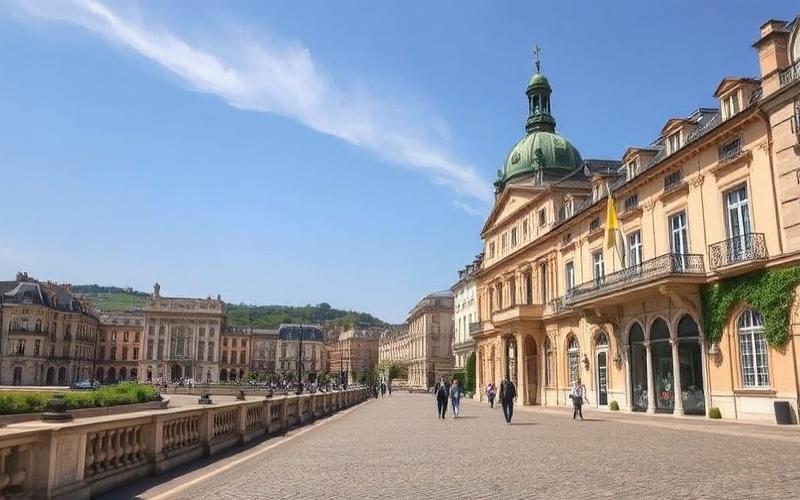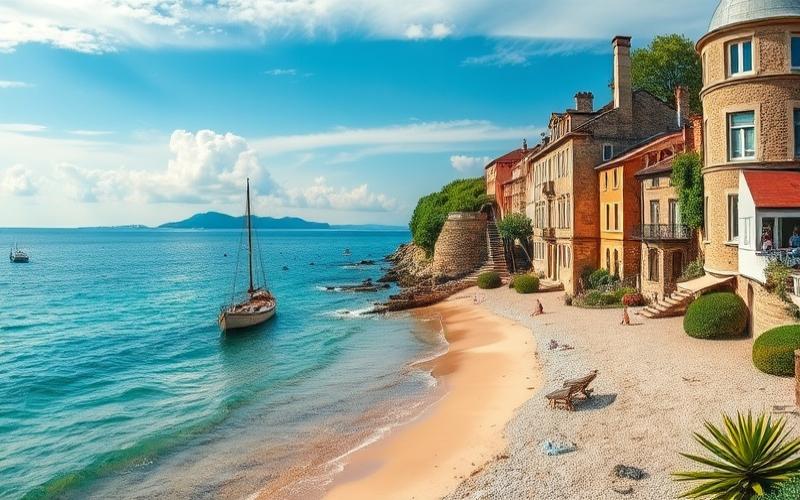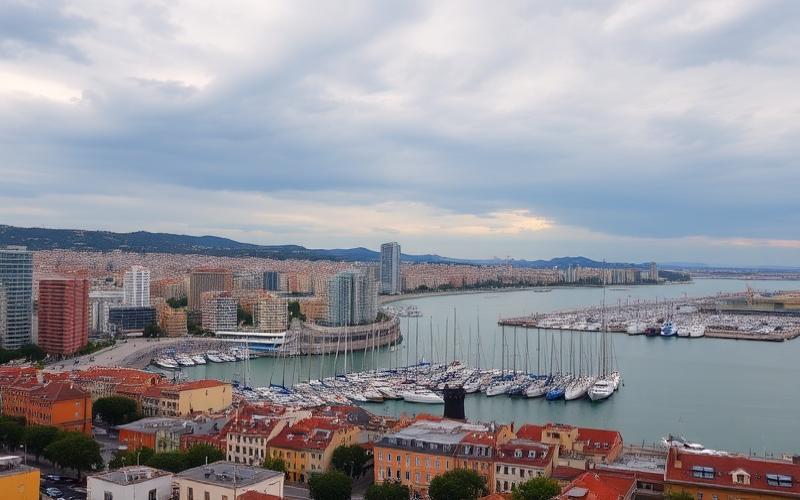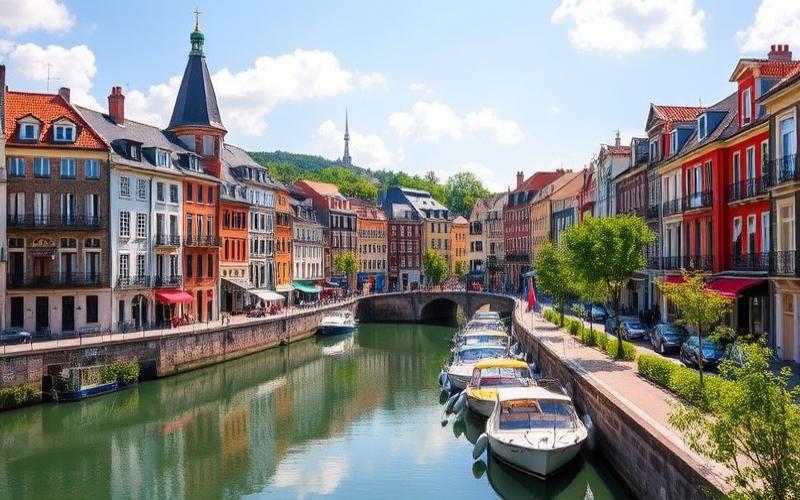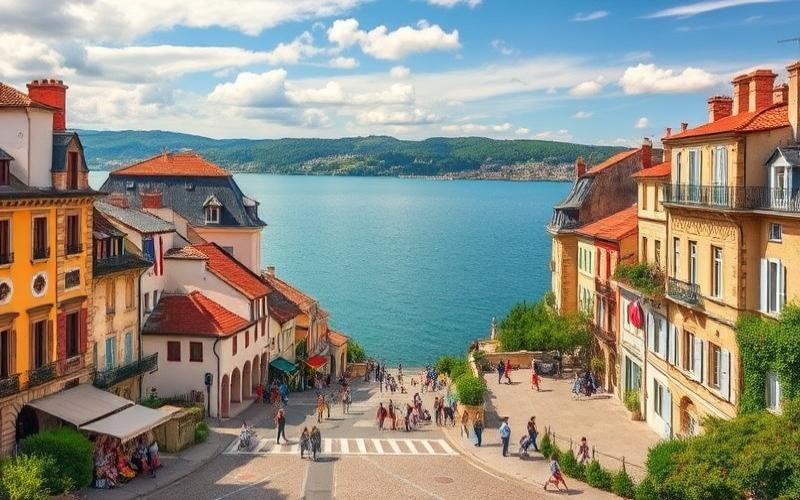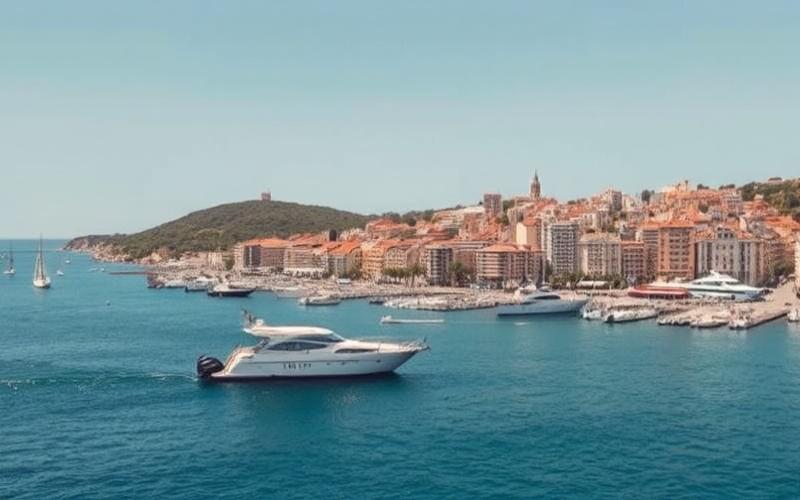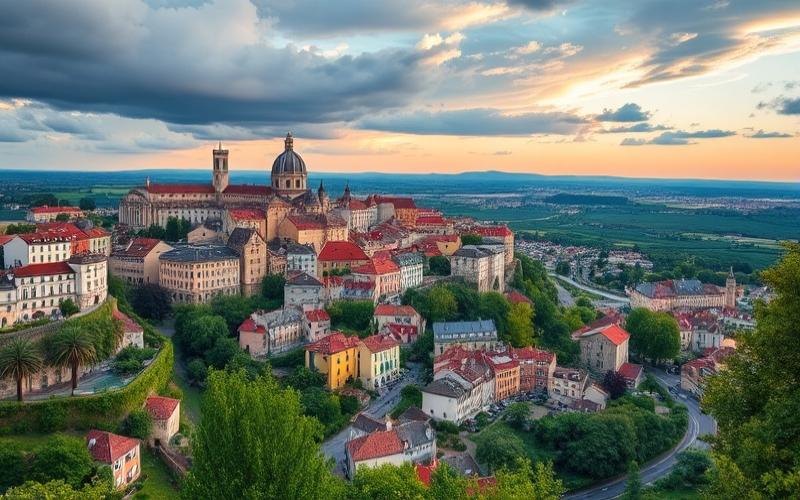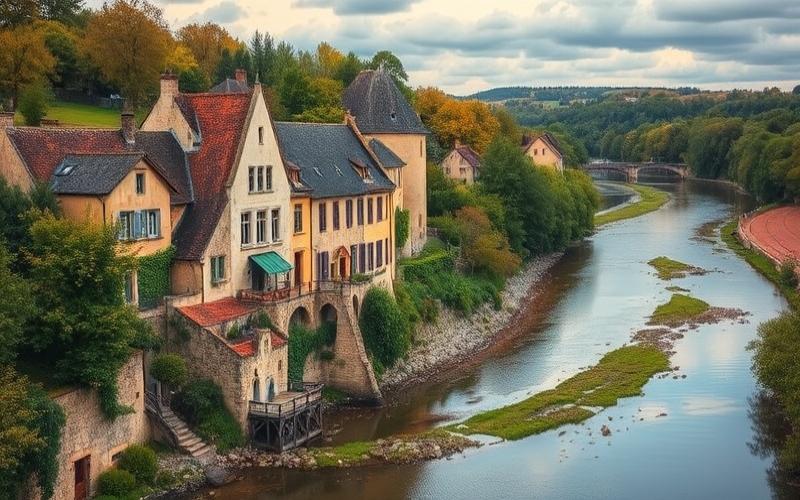
 Published on and written by Cyril Jarnias
Published on and written by Cyril Jarnias
Property renovation in France has become a major issue, both for homeowners seeking to improve their living environment and those looking to optimize their property’s market value. In a context where energy efficiency and comfort are central concerns, undertaking renovation work proves to be a strategic decision. This article will guide you through the essential steps to successfully carry out your renovation project in France, focusing on enhancing your property’s value, practical aspects of the process, and financial considerations to take into account.
Enhancing Your Property Value: The Significant Impact of Renovation
Renovating a property in France isn’t just about aesthetics or comfort; it’s a genuine investment that can significantly increase your property’s value on the real estate market. Recent data is compelling and demonstrates the financial benefits of well-planned renovation.
According to figures from ADEME (French Environment and Energy Management Agency), improving by two energy classes can lead to a property value increase ranging from 6 to 14%. Specifically, for a house initially valued at 250,000 euros, this represents a potential capital gain between 15,000 and 35,000 euros. This appreciation is particularly notable in a real estate market where energy efficiency is becoming a predominant selection criterion for buyers.
The impact is even more pronounced for the most energy-efficient homes. Properties classified A or B on the Energy Performance Certificate (DPE) typically sell for 6 to 8% more than those classified D or E. This difference can reach even greater proportions, as highlighted by a European Commission study revealing that the highest-rated properties can sell for up to twice as much as those classified F or G.
In France, the renovation market is experiencing remarkable growth, driven by ambitious environmental policies. In 2024, properties that underwent renovation work saw their value increase by 5 to 10% on average. More specifically, energy improvements contributed to a 2 to 11% increase in sales value and a 1 to 5% increase in rental value.
These figures highlight the importance of considering renovation not as a mere expense, but as a profitable short and long-term investment. Not only does it improve comfort and reduce energy costs, but it also makes the property more attractive in a real estate market increasingly sensitive to environmental issues.
Good to Know:
Energy renovation has become a major lever for property valuation in France. A significant improvement in energy performance can increase a property’s value by up to 14%, making investment in renovation particularly interesting in the current context.
From Planning to Completion: Key Steps of Your Renovation Project
Undertaking property renovation in France requires a methodical and well-planned approach. Here are the essential steps to successfully carry out your project, from initial conception to final completion.
1. Preliminary Study: The Key to Successful Renovation
Before starting work, it’s crucial to conduct a thorough study of your property. This initial phase helps identify the strengths and weaknesses of your property, as well as improvement opportunities. It typically includes:
- A comprehensive diagnosis of the building’s current condition
- An assessment of energy performance
- An analysis of regulatory and urban planning constraints
- Identification of priority work
This step is even more important since January 1, 2024, as to benefit from certain aids like MaPrimeRénov’ Parcours accompagné, it’s mandatory to use a Renovation Advisor. This building expert will guide you throughout your project, ensuring a comprehensive and coherent approach to renovation.
2. Project Design: Defining Your Goals and Priorities
Once the preliminary study is completed, it’s time to precisely define your renovation project. This step involves:
- Establishing a list of work to be done in order of priority
- Defining your energy performance objectives
- Choosing technical solutions suited to your property and needs
- Drafting a provisional work schedule
This is also the time to think about space layout and any structural modifications you want to make to your property.
3. Professional Selection: A Guarantee of Quality for Your Work
Choosing the craftsmen and companies who will carry out your work is a crucial step. In France, it’s recommended to use RGE-certified professionals (Recognized Environmental Guarantor) for energy improvement work. This certification is often necessary to benefit from certain financial aids.
Take the time to:
- Compare multiple quotes
- Check company references and insurance
- Discuss schedule and intervention methods in detail
4. Work Execution: Monitoring and Coordinating the Site
Once work begins, your role is to closely monitor the site’s progress. If you’ve opted for professional support, they can assist you with this task. Key points to watch:
- Organize regular meetings with craftsmen
- Verify work compliance with the initial specifications
- Anticipate and manage any unforeseen issues
5. Work Acceptance: Validating Renovation Quality
The final step involves accepting the completed work. This is a crucial moment where you must:
- Carefully check finishing quality
- Test proper functioning of installations
- Ensure all set objectives have been achieved
Don’t hesitate to hire an independent expert to assist you during this phase, especially for major renovations.
Good to Know:
Renovating a property in France is a process that requires careful planning. The intervention of a Renovation Advisor can greatly facilitate project management, from preliminary study to work acceptance, ensuring a comprehensive and coherent approach.
Financing Your Project: Budget and Renovation Aids in France
Property renovation in France represents a significant investment, but numerous aids and financing solutions exist to ease the financial burden on homeowners. Understanding available options and establishing a realistic budget are crucial steps to successfully carry out your project.
Establishing a Realistic Budget: The Foundation of Stress-Free Renovation
The cost of renovation in France can vary considerably depending on the scope of work and quality of chosen materials. On average, the price per square meter for renovating an old house ranges between 100 and 450 euros. However, this figure can increase significantly for more complex renovations or in geographic areas where labor costs are higher.
To establish a precise budget, it’s recommended to:
- Get multiple detailed quotes from professionals
- Allow a 10 to 15% margin for unexpected costs
- Prioritize work based on importance and impact on property value
Financial Renovation Aids: Valuable Support for Your Project
France offers a wide range of financial aids to encourage renovation, particularly when it comes to improving home energy efficiency. Here are the main aids available in 2025:
1. MaPrimeRénov’: This state aid, managed by Anah (National Housing Agency), has become the flagship program for financing energy renovation work. It offers two pathways:
– MaPrimeRénov’ Parcours accompagné: For comprehensive renovations, this aid can finance up to 90% of the work amount, with a cap of 70,000 euros. It requires support from an accredited expert. – MaPrimeRénov’ by action: For specific work, with fixed amounts depending on the type of work and household income.
2. Energy Savings Certificates (CEE): These bonuses, paid by energy suppliers, can be combined with MaPrimeRénov’. For very low-income households, combining these aids can cover up to 100% of the work cost.
3. Zero-Interest Eco-Loan (Éco-PTZ): This interest-free loan can finance up to 50,000 euros of energy renovation work, over a period of 15 to 20 years.
4. Reduced VAT Rate: Energy renovation work benefits from a 5.5% VAT rate, representing significant savings on the overall project cost.
5. Local Aids: Many regions, departments, and municipalities offer complementary aids for renovation. It’s important to check with local authorities to identify all opportunities.
Optimizing Your Renovation Financing
To make the most of available aids and optimize your project financing, here are some tips:
- Use a Renovation Advisor to guide you through administrative procedures and aid optimization
- Prefer a comprehensive renovation approach to maximize aids, particularly with MaPrimeRénov’ Parcours accompagné
- Combine different aids while ensuring compliance with stacking rules
- Explore traditional bank financing options to complement public aids if necessary
Expertise from Sophie, renovation advisor in the 75:
“When considering renovation work, it’s essential to understand the available financial aids, but be careful about an often overlooked point: the compatibility between different aids. For example, some grants aren’t combinable, or their combination may be capped. Once, a client undertook work counting on several aids, but ended up with less funding than expected because they hadn’t anticipated these restrictions. A knowledgeable professional will know how to navigate the maze of subsidies, optimize your financing plan, and avoid these unpleasant surprises.”
Good to Know:
In 2025, renovation aids in France can cover a significant portion of work, up to 90% of the amount for comprehensive renovations with MaPrimeRénov’ Parcours accompagné. The judicious combination of different available aids can enable ambitious work while controlling your budget.
Materials and Techniques: Keys to Sustainable and High-Performance Renovation
The choice of renovation materials and techniques is crucial to guarantee your project’s durability and performance. In France, emphasis is placed on using ecological and energy-efficient solutions, in line with national objectives for reducing the building sector’s carbon footprint.
Ecological Materials: Combining Performance and Environmental Respect
The use of ecological materials in renovation is experiencing significant growth in France. These materials often offer excellent thermal performance while limiting construction’s environmental impact. Among popular options are:
- Wood wool: Excellent thermal and acoustic insulator, it naturally regulates humidity.
- Hemp: A local material, it offers good thermal and acoustic insulation while being resistant to mold.
- Cellulose wadding: Made from recycled paper, it has excellent insulating properties.
- Cork: Naturally rot-resistant and fire-resistant, it’s ideal for thermal and acoustic insulation.
These materials fit perfectly into a sustainable renovation approach, contributing to improved thermal comfort while reducing the building’s carbon footprint.
Energy Renovation Techniques: Optimizing Building Performance
Energy renovation in France relies on proven techniques to significantly improve building performance:
1. External Thermal Insulation (ETI): This technique envelops the building with an insulating layer, considerably reducing thermal bridges. It’s particularly effective for old houses and can be combined with facade restoration for an aesthetic result.
2. Double Flow Mechanical Ventilation (VMC double flux): This system ensures constant indoor air renewal while recovering heat from extracted air, allowing substantial energy savings.
3. Heat Pumps (HP): Very popular in France, air-to-water or geothermal HPs offer an economical and ecological heating and domestic hot water production solution.
4. Thermal and Photovoltaic Solar Panels: Integrating these technologies enables hot water and electricity production, reducing dependence on fossil fuels.
The Importance of Air Tightness
Special attention must be paid to the building’s air tightness. Good air tightness helps to:
- Reduce heat loss
- Improve comfort by eliminating drafts
- Optimize ventilation system efficiency
Techniques like installing vapor barriers or using special adhesive tapes around openings are essential to achieve good air tightness.
Opening Renovation: A Key Point of Energy Performance
Replacing windows and doors is often a central element of energy renovation. Modern options include:
- Double or triple glazed windows
- High thermal performance PVC, aluminum, or wood joinery
- Insulating entrance doors
These elements contribute not only to thermal insulation but also to the home’s acoustic insulation.
Integrating Renewable Energy
Renovation is the ideal opportunity to integrate renewable energy systems into your property. Besides solar panels, consider:
- Biomass boilers (wood, pellets)
- Rainwater harvesting systems
- Micro-wind turbines for suitable areas
These installations can benefit from specific aids and significantly reduce the home’s carbon footprint.
Good to Know:
The choice of renovation materials and techniques must be adapted to each project. It’s recommended to use qualified RGE professionals (Recognized Environmental Guarantor) to benefit from personalized advice and ensure implementation quality, essential for achieving targeted energy performance.
Conclusion: Renovating to Sustainably Enhance Your Property Value in France
Property renovation in France represents much more than simple aesthetic or functional improvement. It’s a strategic investment that significantly enhances your property value while contributing to national energy transition efforts. The figures speak for themselves: well-executed energy renovation can increase a property’s value by up to 14%, offering an attractive medium and long-term return on investment.
The approach to renovation in France has considerably evolved in recent years, with emphasis on overall energy performance rather than piecemeal improvements. This holistic vision, encouraged by programs like MaPrimeRénov’ Parcours accompagné, optimizes work efficiency and maximizes benefits in terms of both comfort and property valuation.
The success of a renovation project rests on several essential pillars:
- Meticulous planning, from preliminary study to work acceptance
- Choosing qualified professionals, guaranteeing intervention quality
- Optimized financial management, leveraging numerous available aids
- Using high-performance materials and techniques, aligned with sustainability objectives
France offers a particularly favorable framework for renovation, with one of Europe’s most developed financial aid systems. Homeowners thus have the opportunity to undertake ambitious work while controlling their budget, thanks to programs like MaPrimeRénov’, CEE, or Éco-PTZ.
Committing to a renovation project is also an opportunity to rethink your home to adapt it to contemporary lifestyles and environmental challenges. Integrating renewable energy solutions, improving thermal and acoustic insulation, or optimizing spaces contribute to creating a more comfortable, energy-efficient, and environmentally respectful home.
Ultimately, renovating your property in France in 2025 aligns with both personal and collective approaches. It’s a way to enhance your assets while actively participating in the French real estate portfolio’s ecological transition. With a well-structured approach and support from qualified professionals, renovation becomes a profitable and sustainable investment, offering tangible benefits for both the homeowner and society as a whole.
Good to Know:
Property renovation in France has become a major issue, supported by ambitious public policies. In 2025, homeowners benefit from a particularly favorable context for undertaking renovation work, with substantial financial aids and enhanced support throughout the project.
Disclaimer: The information provided on this website is for informational purposes only and does not constitute financial, legal, or professional advice. We encourage you to consult qualified experts before making any investment, real estate, or expatriation decisions. Although we strive to maintain up-to-date and accurate information, we do not guarantee the completeness, accuracy, or timeliness of the proposed content. As investment and expatriation involve risks, we disclaim any liability for potential losses or damages arising from the use of this site. Your use of this site confirms your acceptance of these terms and your understanding of the associated risks.




